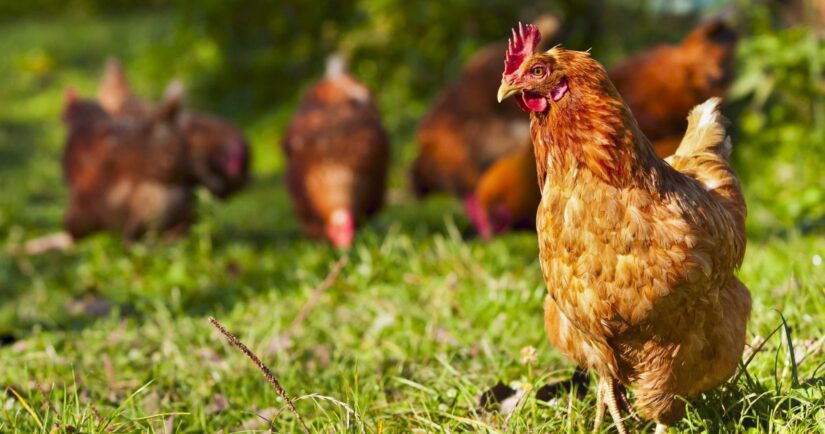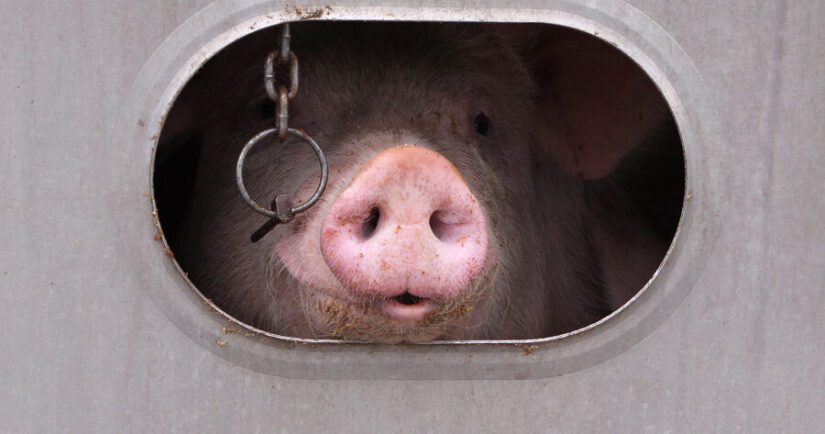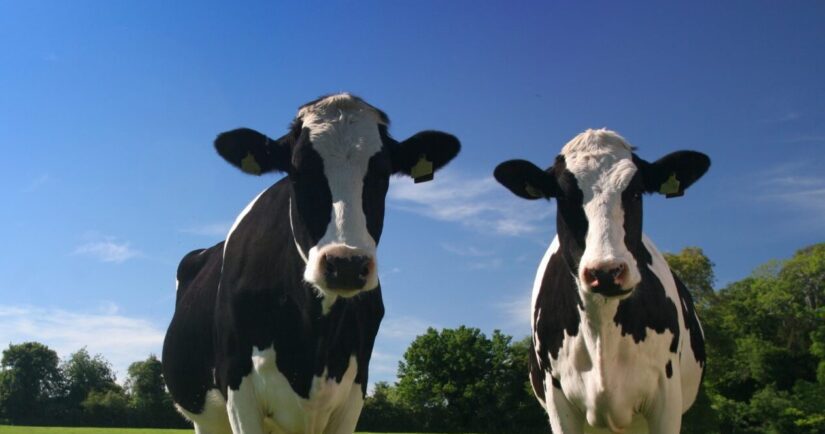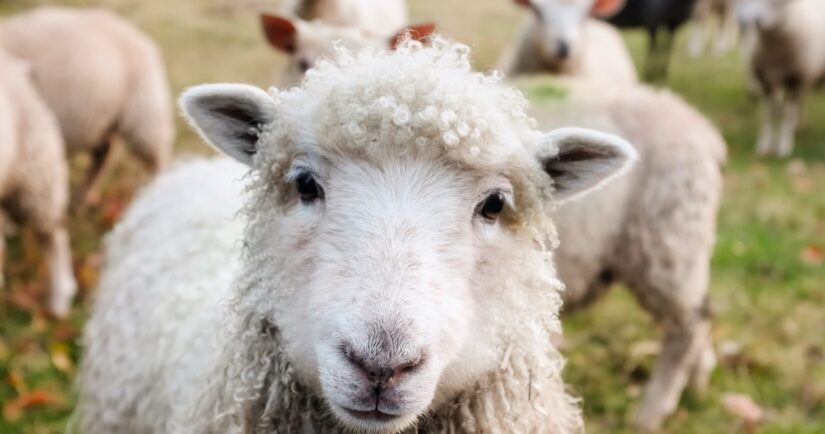The municipal, provincial, and federal governments develop laws for farmed animals. Provincial legislation applies to animals on farms and during slaughter, whereas federal legislation applies during transport and at federal slaughterhouses. Municipalities can also make laws regarding the care and control of farmed animals.
Update: From 2022-2023 the BC SPCA participated in a committee formed by the Ministry of Agriculture and Food to assess the farmed animal welfare framework in British Columbia. This committee was tasked with making the farmed animal framework more explicit and transparent, providing recommendations to promote higher farmed animal welfare standards, and supporting those involved in delivering these standards.
The recommendations formed by the committee, which the BC SPCA fully supports, provided they are read in totality and actioned collaboratively, have been submitted to the Minister of Agriculture and Food in March 2024.
Thank the government for this important step.
Learn more about how animals are protected at each level:

National laws for farmed animals
National Farm Animal Care Council: Codes of Practice
The National Farm Animal Care Council (NFACC) is a national organization for farmed animal welfare in Canada. They coordinate the development of the Codes of Practice for the care and handling of farmed animals. The Codes of Practice are nationally developed guidelines that serve as our national understanding of animal care requirements and recommended practices.
NFACC assembles a committee of representatives from various backgrounds, including farmers, transporters, veterinarians, animal welfare organizations, food processors, retail and food service organizations, researchers and government officials. Together, they write each code through a consensus-based approach, incorporating scientific research, public values, and general farm practices. The BC SPCA partners with Humane Canada to represent the animal welfare movement on many of these committees, and many animal welfare wins have been achieved.
While these Codes of Practice outline animal care requirements, they are not referenced by law in every province. In B.C., the Codes of Practice are referenced by law. Other provinces that refer to the Codes of Practice in their provincial legislation include:
- Newfoundland and Labrador
- Manitoba
- New Brunswick
- Prince Edward Island
- Saskatchewan
All other provinces and territories do not reference the Codes of Practice in their legislation. However, in all provinces and the Yukon, animal agriculture practices that cause animal distress are exempt from an offence under a provincial animal cruelty act if considered a “generally accepted practice.” Although this term is not defined, the Codes of Practice can serve as the guidelines for what is considered acceptable in the farmed animal industry and what is not.
This means that rather than farmers in B.C. being required to follow the Codes of Practice, the Codes of Practice lay out what is a generally acceptable practice and, therefore, exempt from B.C.’s Prevention of Cruelty to Animals Act (PCA Act) as described below. The BC SPCA advocates that the Codes should be a prescriptive duty of care, meaning farmers are required to follow them and that there is a system in place for ensuring all farms are following the applicable Code.
Criminal Code of Canada
The Criminal Code of Canada has two sections related to animals: Section 444 – Animals and Section 445.1 – Cruelty to Animals.
Under the Criminal Code, it is an offence to:
- Willfully cause or permit unnecessary pain, suffering or injury to an animal
- Fail to provide reasonable care to an animal, thereby causing it pain, suffering or injury
- Abandon an animal in distress or willfully neglect or fail to provide suitable and adequate food, water, shelter and care
It can be difficult to prove a willful act, making the Criminal Code more challenging to use in animal cruelty investigations. In B.C., it is more common for the provincial PCA Act to be used, as it does not require proof of intent.
Health of Animals Regulations
Laws about the transport of animals, found in Part XII of the Health of Animals Regulations, are made and enforced by the federal government. These regulations provide minimum protection for the 770 million animals transported each year.
The transport laws were originally written in 1977. Consultations began in 2006 to update the transport laws. After a public consultation period in 2016/2017 in which the BC SPCA participated, the Canadian Food Inspection Agency (CFIA) released an amendment to the legislation, which came into force in February 2020.
Positive changes were made regarding the welfare of animals in transport, but there is still much room for improvement.
Safe Food for Canadians Regulations
Laws about animals raised for food, specifically regarding slaughter, can be found in Division 7 of the Safe Food for Canadians Regulations. Division 7 has subdivisions relating to the humane treatment of food animals and slaughter. This law applies in federally regulated slaughterhouses.
This regulation requires that animals used for food be handled so they do not experience “avoidable distress or avoidable pain.” The CFIA is in charge of enforcing this law. The term “avoidable” can be subjective and is up to the judgement of authorities at the slaughter facility.
Another issue that needs to be addressed to improve farmed animal welfare is that slaughter without prior stunning is still permitted, meaning animals can experience extreme suffering if death does not occur immediately. Read our Position Statement on Humane Killing.

Provincial laws for farmed animals
Prevention of Cruelty to Animals Act (PCA Act)
B.C.’s PCA Act is the provincial legislation that outlines the required standards of care for animals. Under the PCA Act, it is an offence for a person responsible for an animal to cause/permit it to be in distress. An animal is in distress if it is:
- Deprived of adequate food, water, shelter, ventilation, light, space, exercise, care or veterinary treatment
- Kept in unsanitary conditions
- Not protected from excessive heat or cold
- Injured, sick, in pain or suffering
- Abused or neglected
The PCA Act also says that a person can’t be convicted of causing distress if the distress is caused by “reasonable and generally accepted practices of animal management.”
In other words, causing distress to an animal is legal if the person is using “generally accepted practices of animal management.” NFACC’s Codes of Practice describe these generally accepted practices as they relate to farmed animal production, so updating the Codes is an important step in raising the bar for farmed animal welfare.
Meat Inspection Regulation
Provincial legislation in B.C. around animal slaughter can be found in the Meat Inspection Regulation. This law applies in provincially regulated slaughterhouses and on-farm slaughter.
The BC SPCA is pleased that improvements we advocated for have been made to the provincial meat inspection process that will better protect animal welfare. A key improvement is the increased frequency of inspections of slaughter establishments and monitoring of animal welfare at slaughter.
The Ministry of Agriculture continues to consult feedback on other proposed changes relating to slaughter in B.C., and we hope to see further improvements.

Municipal laws for farmed animals
British Columbia’s Community Charter governs animal protection at the municipal level, and Part 3 Division 6 – Animal Control relates to animals. A municipality has the authority to provide any service that the council considers necessary or desirable, including the power to regulate, prohibit, and impose requirements about animals. This is quite broad and allows for significant discretion regarding animals. As long as there is a “municipal purpose,” a municipality is justified in passing bylaws related to animals.
It is important to address animal welfare at the municipal level for many reasons:
- Each year, the Union of British Columbia Municipalities asks the Province to address issues related to animals. More often than not, the response from the Province is that the Community Charter already gives municipalities the ability to address the issue locally.
- Successful bylaw pilot projects in municipalities can help make the case that a province-wide approach is needed and demonstrate success on a small scale.
- While most citizens are motivated to take action once they have adequate education, some require enforcement action. Enforcement actions involving tickets can help fund enforcement activities and, more importantly, motivate citizens to action.
- Municipalities without bylaws in place to address animal issues can become known as a “safe haven” for people who neglect and abuse animals. The BC SPCA frequently encounters scenarios where a person facing enforcement action in one municipality for animal neglect will move to another with fewer regulatory bylaws.
Some common bylaws related to farmed animals include backyard hens, farm animals in entertainment (e.g. rodeos), and bees. Use the BC SPCA’s online search tool to see municipalities that best protect farmed animals.

Take action
Higher standards with greater enforcement are needed to protect animals and give them a life worth living. We need your help to tell farmers and politicians that animals matter.
- Subscribe to our action alerts to be notified when you can help speak for farmed animals
- Learn more about the need for a national farmed animal welfare system in Canada (PDF)
- Contact your local Members of Parliament (or in B.C., Members of the Legislative Assembly) and your municipal office to voice your concerns for farmed animal welfare.
Subscribe to FarmSense
FarmSense is delivered four times a year and includes news about farmed animal welfare, research and updates on what the BC SPCA is doing to help further farmed animal welfare in Canada.
